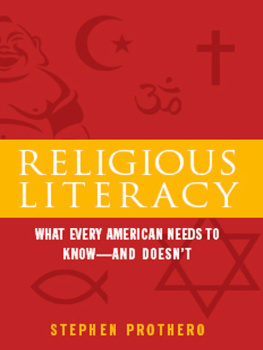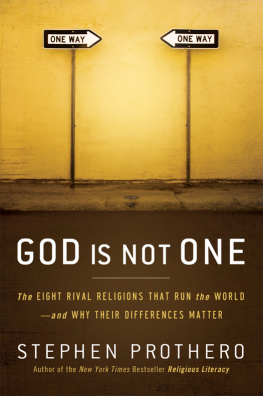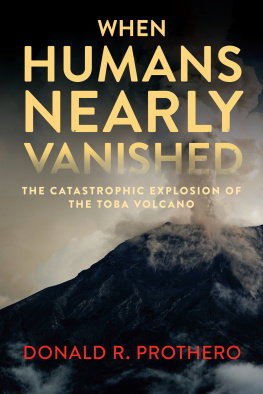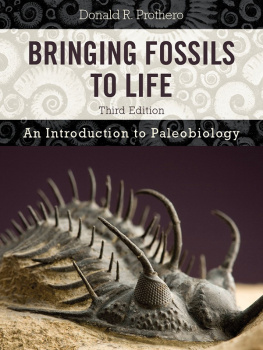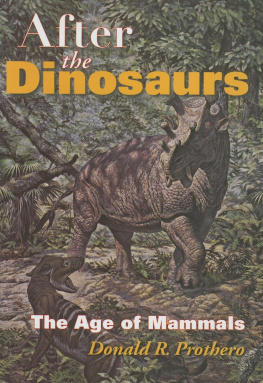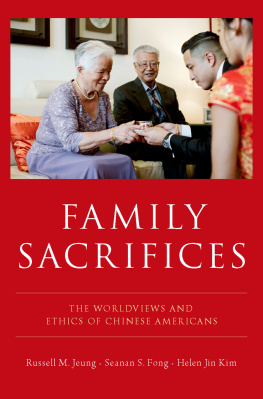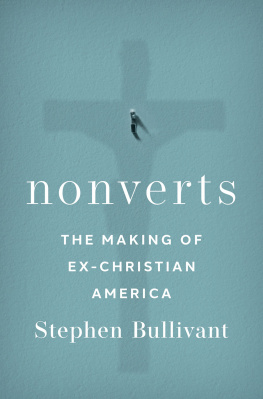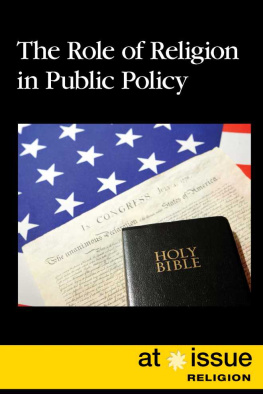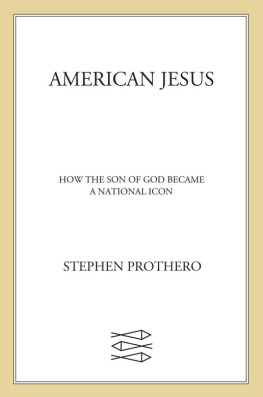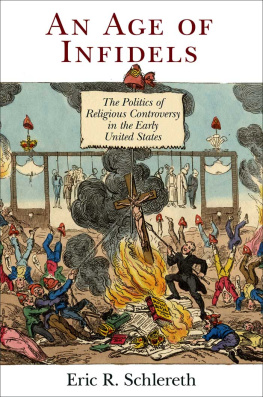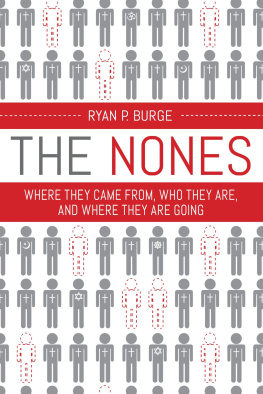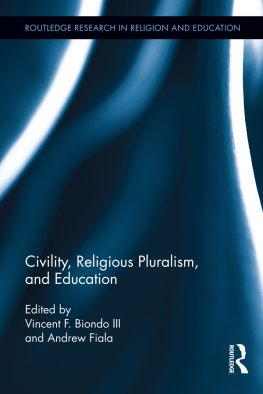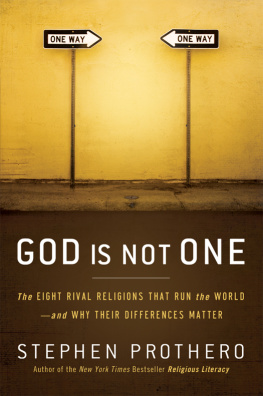A few years ago I was standing around the photocopier in Boston Universitys Department of Religion when a visiting professor from Austria offered a passing observation about American undergraduates. They are very religious, he told me, but they know next to nothing about religion. Thanks to compulsory religious education (which in Austria begins in elementary schools), European students can name the twelve apostles and the Seven Deadly Sins, but they wouldnt be caught dead going to church or synagogue themselves. American students are just the opposite. Here faith without understanding is the standard; here religious ignorance is bliss.
The religious differences between Europe and the United States are typically described in terms of beliefs and practices: Europeans are far less likely than Americans to join and attend houses of worship or to believe in heaven and hell. This book, however, focuses on religious knowledge. It begins with a paradox I had been wrestling with for some time when my Austrian colleague helped to clarify it for me. That paradox is this: Americans are both deeply religious and profoundly ignorant about religion. They are Protestants who cant name the four Gospels, Catholics who cant name the seven sacraments, and Jews who cant name the five books of Moses. Atheists may be as rare in America as Jesus-loving politicians are in Europe, but here faith is almost entirely devoid of content. One of the most religious countries on earth is also a nation of religious illiterates.
Bible Babble
The civic implications of this paradox began to dawn on me on February 25, 1993, the day the Bureau of Alcohol, Tobacco, and Firearms (BATF) raided the Waco, Texas, compound of an obscure religious sect called the Branch Davidians. I was at the time the proud owner of a freshly minted PhD trying to hold onto my first teaching job. My specialty was (and is) American religions, but I had no real expertise in new religious movements, and certainly no close encounters of the apocalyptic kind. Still, as I watched television coverage of the raid (which left six Branch Davidians and four BATF officials dead) and followed subsequent events in the media, I felt I knew how it was going to go down. The FBI, which took over the case from the BATF after the botched raid, thought it was calling the shots. But as I saw it, the Branch Davidians leader, David Koresh, was luring FBI agents into playing roles he had assigned to them in an end game of his own imaginingan end game whose logic derived not so much from FBI profiles or SWAT team tactics as from Koreshs own idiosyncratic interpretation of the biblical book of Revelation.
Its going to burn, I told myself, and I remember thinking that I should pick up the phone and call the FBI, tell them what Koresh must be thinking, tell them to give him the time he had requested to unlock the cryptic meanings of the book of Revelations Seven Seals, show them how perfectly, how eerily, they were playing the parts he had assigned to them, let them know that, if they persisted, the whole thing would end in fire. But how do you call the FBI? (Do they have an 800 number?) And why would they listen to a thirty-something like me?
I did not call. I hoped instead. I hoped that the federal government knew what it was doingthat President Bill Clinton and Attorney General Janet Reno were getting good advice from people far more knowledgeable than I about end times theology. Unfortunately, no such counsel was forthcoming. And so the siege did end in fire. As the FBI attacked the compound with tear gas and combat vehicles on April 19, 1993, flames engulfed the buildings, and Koresh and about seventy-five followers (including twenty-one children) perished.
Waco was a case of death by religious ignorance. Perhaps the outcome was fated; perhaps the Branch Davidians were, as many believed, an incendiary cult and Koresh a megalomaniac hell-bent on death and destruction. Still, it might have ended differently if there had been someone, anyone, in the White House or the FBI who knew something, anything, about apocalyptic Christianity, if federal officials had not blithely dismissed Koreshs theology as Bible babble unworthy of engagement.
Religious ignorance proved deadly again in the aftermath of September 11, 2001, when an Indian American man was shot and killed at an Arizona gas station by a vigilante who believed the mans turban marked him as a Muslim (and therefore for assassination). But what killed Balbir Singh Sodhi, who was actually a Sikh, was not simply bigotry. It was ignorance: the vigilantes inability to distinguish a Muslim from a Sikh. The moral of this story is not just that we need more tolerance. It is that we need better educationand not because it is nice to be multicultural but because the worlds religions, no longer quarantined in the nations of their birth, now live and move among us: yoga in our church halls, nirvana in our dictionaries, and Sikhs at our gas stations.
Religious ignorance was also rife after 9/11 in Washington DC, where, I soon learned to my dismay, hardly anyone spoke Arabic or understood the basics of Islam. And so the nation was treated for months to theology by sound bite. Islam is peace, President Bush stated repeatedly, as if that mantra were all Americans needed to know about the Islamic tradition. Meanwhile, the televangelist Jerry Falwell denounced Muhammad as a terrorist, and Paul Weyrich and William Lind, prominent voices in American conservatism, called Islam a religion of war. Who was right? Unfortunately, Americans had no way to judge, because, when it comes to understanding the Islamic tradition, most Americans are kindergarteners at best.
Cultural Literacy
Cultural literacy has been hotly debated ever since E. D. Hirschs best seller of that name injected the term into the culture wars in 1987. In Cultural Literacy, Hirsch, a University of Virginia English professor, argued that much of our common cultural coin had been drastically devalued. (Remember the Alamo? Um, not really.) Hirsch traced this problem to John Dewey and other Progressive-era education reformers, who gave up in the early twentieth century on content-based learning in favor of a skills-based strategy that scorned the piling up of information. This new educational model produced, according to Hirsch, a gradual disintegration of cultural memory, which caused in turn a gradual decline in our ability to communicate. Hirsch rightly understood that there are civic implications of this descent into cultural ignorance, particularly in a democracy that assumes an informed citizenry. Having the right to vote is meaningless, he observed, if a citizen is disenfranchised by illiteracy or semiliteracy. So Hirsch called for a return in Americas schools to core knowledge, beginning with his books appendix of five thousand or so names, dates, concepts, and phrases essential in his view to cultural literacy.
When I first began teaching in the early 1990s I was a follower of Dewey and the Progressives. In high school I had come to see the subject of history as nothing more than the mindless accumulation of names and dates, and I vowed upon entering college in the late 1970s that I would study every subject I could manage except history. Happily, I came across a professor who taught me that the vocation of history is not about memorizing names and dates but about forming judgments and contributing to debates about what happened in the past. So when I finished graduate school and became a professor myself, I told students that I didnt care about facts. I cared about having challenging conversations, and I offered my quiz-free classrooms as places to do just that. I soon found, however, that the challenging conversations I coveted were not possible without some common knowledgecommon knowledge my students plainly lacked. And so, quite against my prior inclinations, I began testing them on simple terms. In my world religions classes I told my students that before we could discuss in any detail the great religious traditions of the world, we would need to have some shared vocabulary in each, some basic religious literacy. In this way I became, like Hirsch, a traditionalist about content, not because I had come to see facts as the end of education but because I had come to see them as necessary means to understanding.

